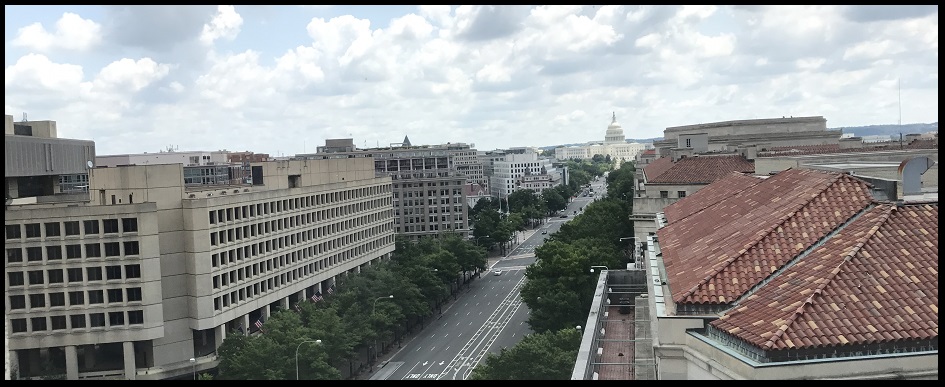The Washington Post speaks for the CIA, IC and DNI. The New York Times and Politico speak for the FBI, DOJ-NSD and DHS concerns, while CNN is the representative voice of the U.S. State Dept. These are the constants in the ever-changing world of narrative engineering. Never forget them.
 As a direct result of the concerns expressed within a New York Times article, it’s abundantly clear the FBI and DOJ-NSD are worried about the new House Subcommittee on Federal Weaponization of Government. Specifically, the concern of the DOJ/FBI is the potential for the committee to start looking behind the curtain at the activity and intents of the special counsel operation.
As a direct result of the concerns expressed within a New York Times article, it’s abundantly clear the FBI and DOJ-NSD are worried about the new House Subcommittee on Federal Weaponization of Government. Specifically, the concern of the DOJ/FBI is the potential for the committee to start looking behind the curtain at the activity and intents of the special counsel operation.
(New York Times) – […] The resolution appears to give him authority to subpoena the Justice Department for information about the special counsel inquiry into Mr. Trump’s attempts to overturn the 2020 election and his handling of classified documents, along with other politically charged matters like an open tax investigation into President Biden’s son, Hunter Biden.
The text of the resolution would also grant Mr. Jordan’s panel the power to receive the same highly classified information that intelligence agencies make available to their oversight committee, the House Permanent Select Committee on Intelligence.
Intelligence Committee members have access to some of the most sensitive secrets in the government, including information about covert actions, which are not shared with other lawmakers. Traditionally, House leaders tend to place on the intelligence panel members of their party they think are especially trustworthy not to disclose classified information.
While Mr. Jordan’s investigative unit will be housed within the Judiciary Committee, its 13 members — eight of whom would be Republicans — will not be limited to lawmakers on that panel. (read more)
It would appear the FBI and DOJ are concerned that congressional oversight is a risk to their activity. The advanced PR firm for the conduct therein is always Politico and/or the New York Times. This subcommittee has them collectively and understandably triggered.
If the House actually uses the power they have, they could begin to finally counteract the years of corruption and politicization of the agencies they are expected to conduct oversight upon. However, using that power requires the full-throated support of the House Speaker, and that’s where things get tenuous.
An entirely new approach is going to be needed if the intent of the subcommittee is going to be successful as expressed. Part of that new approach is going to require a much more adversarial approach and new rules therein.
Breaking through the silo issue is not as difficult as it seems, but it requires outside the box use of communications and strategy. We should know by the end of this week whether or not this subcommittee will be up to the task. If they are, they will have my support.
Either way, I will not pull punches for readers on what we should expect or not expect. There are many approaches the subcommittee could take in order to use the known history of the weaponization to tell the story. The question is whether they have the will to do it.
CTH knows the methods used by the deepest part of the administrative state to retain their power system and corrupt activity. We also know the ways to defeat the system that has been created. If the subcommittee wants help, I will organize support.
As always, I will be watching closely, predicting and calling out what to expect.

